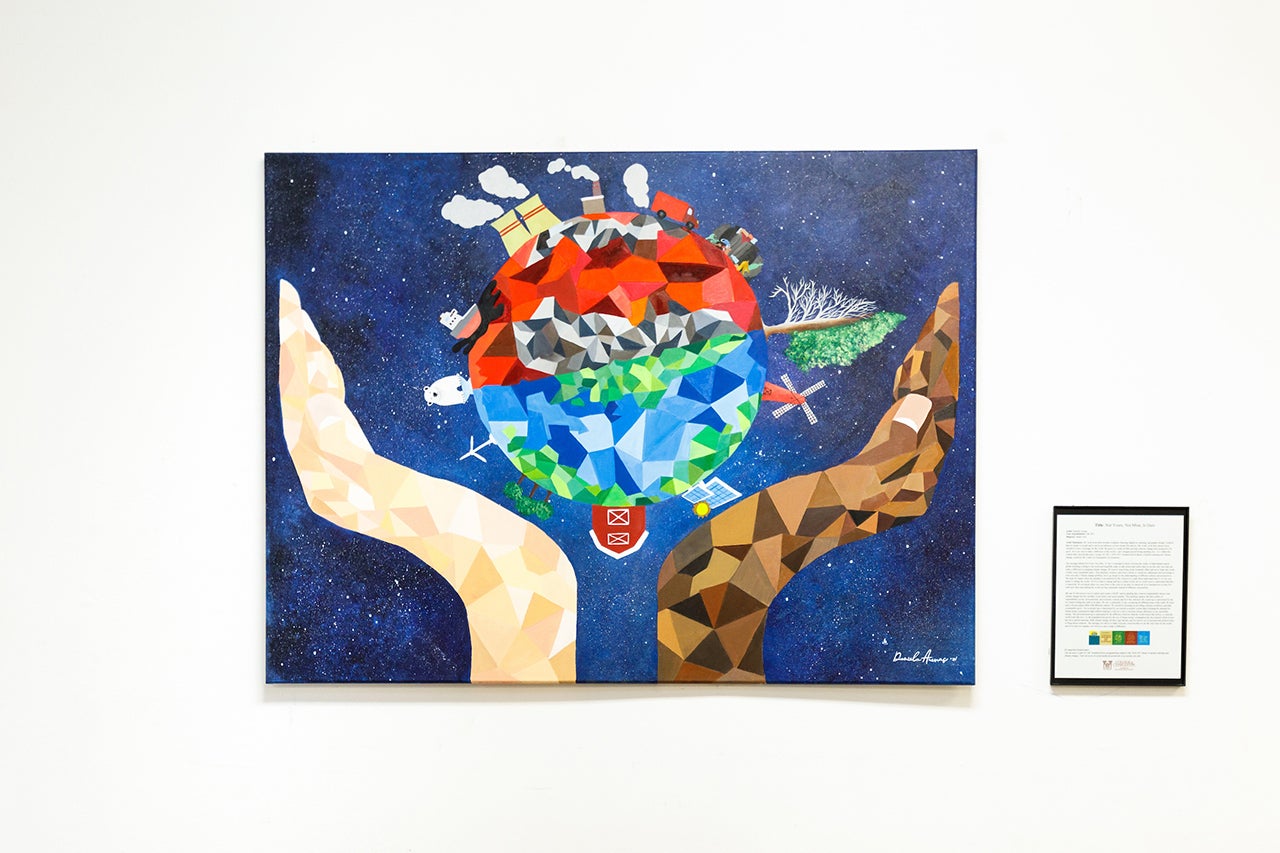Art serves many purposes. It exists to inform, to entertain, to motivate, to soothe and sometimes to unsettle. But almost always, art provides connections. And that’s exactly what three students at the College of Charleston hope their recently created works will do regarding the issues of climate change and global warming.
Daniela Arenas, Caroline Morris and Don Sturdivant are the three students whose respective artworks were selected – and funded – as winners in the 2020 Student Art Expression of the Year program. Each year, the artworks chosen are put on display around campus. This year, the pieces were conceived and created to help viewers connect more fundamentally with the issues of climate change and global warming – the chosen theme for the fourth year of the College’s Quality Enhancement Plan.
Let’s take a closer look at these artworks and learn what their creators have to say about them:
Don Sturdivant (nontraditional student enrolled in the studio art program), Mount Pleasant, South Carolina
“My series of paintings (on display in the Simons Center for the Arts) represent a possible future for the Charleston area as we attempt to be ‘resilient’ in the face of climate change and sea level rise.
“Sea level rise due to climate change seems all but inevitable. Expensive engineering solutions alone will be insufficient to address all the effects of sea level rise in our region. They must be coordinated with political, economic and even personal actions to address the challenge. Consequently, my project takes a somewhat cynical approach to the issue, by presenting a future where Charleston adapts to rising sea levels by returning to the Charleston ‘built’ topography of the 17th century. What are now streets and boulevards built on landfill and impervious surfaces will be reclaimed by the sea. These works represent various vignettes of a future Charleston where waterborne transit becomes the norm.”
Daniela Arenas (junior, studio art major), Bogota, Colombia
“My work as an artist includes sculpture, drawing, digital art, painting and graphic design. I believe art speaks to people and it can influence how people feel and act. The message behind this work (on display in the Simons Center for the Arts), which I’ve titled Not Yours, Not Mine, Is Ours, is to show everyone the reality of what human-caused global warming is doing to our world and hopefully, make us take action.
“In this project, I wanted to explore and create a painting that connects sustainability literacy and climate change, but also includes social justice and racial equality. When viewers see this painting, my hope is that it prompts them to understand that it’s in our own hands to change the world.”
Caroline Morris (junior, arts management and studio art double major), Greenville, South Carolina
“If you are like me, sustainability is something that is always lurking in the back of your mind. When making this piece (on display in the Rita Liddy Hollings Science Center), I began to educate myself on sustainability and I realized that I didn’t really understand it. Now I know that the social, economic and environmental legs of sustainability are not separate at all. In fact, one does not work without the other. They are all dependent on each other. And to those three, the Center for Sustainable Development adds personal and political legs.
“It’s clear that humans are responsible for climate change and global warming – the focus of this year’s CofC Sustains/Solves sustainability theme. So, my piece is a visual representation of what sustainability might look like.
“Not only did I want this figure to be a Mother Nature figure, I wanted my viewers to look at something that is familiar to them – to look at the figure and see a human shape. The flowers and greenery coming out of the figure show the earth’s beauty, and the sand and ocean sections demonstrate how different the parts of the earth are from each other. They also represent the ocean ecosystems of the Lowcountry that are under threat from global warming. Most of the figure is being taken over by trash and pollution. This shows how nature can suffer when people aren’t living sustainably.”







